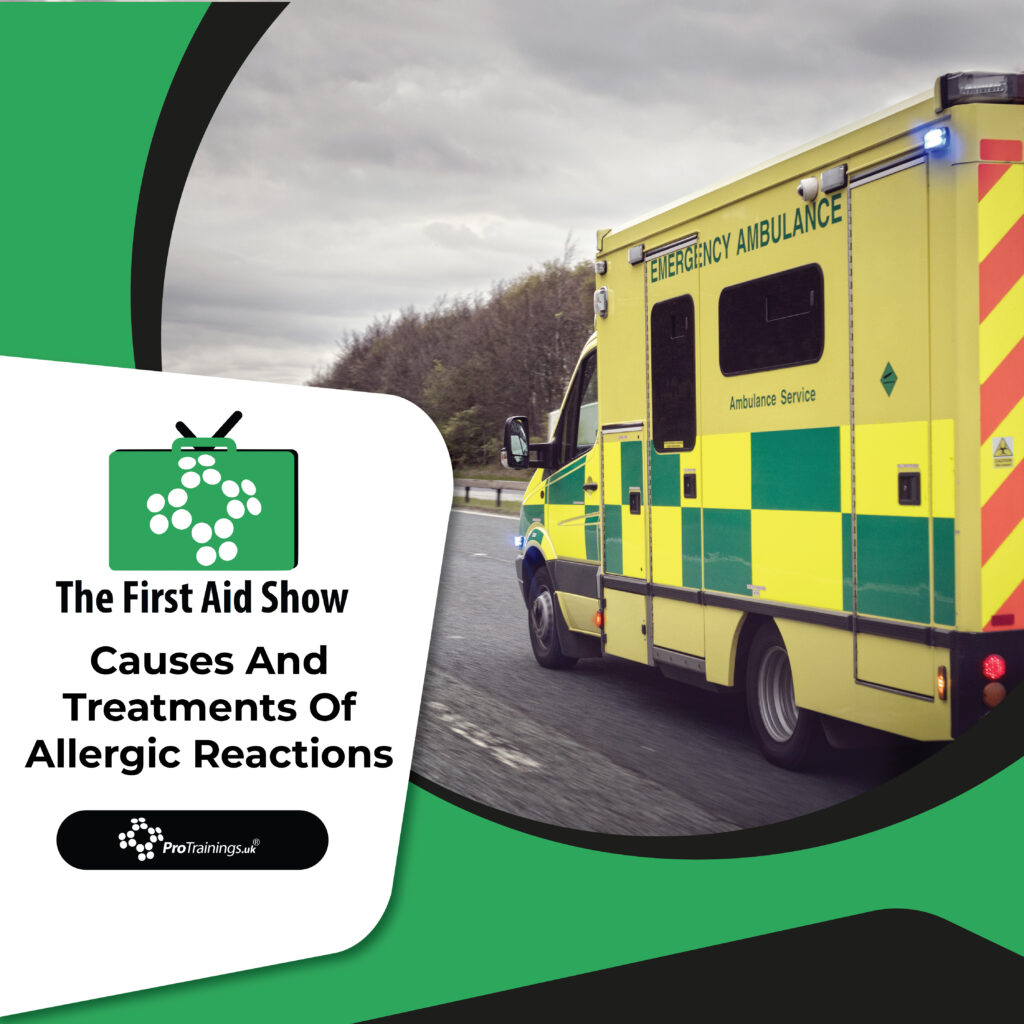Managing Allergic Reactions: A Paramedic’s Insight
Welcome to this edition of the First Aid Show. Today, we delve into the causes and treatments of allergic reactions, highlighting the importance of quick and accurate response to these emergencies as explained by experienced paramedics.
Understanding Allergic Reactions
Recognizing an allergic reaction early is key to effective intervention. Symptoms to look out for include:
- Swelling of the face, tongue, or neck, which can obstruct the airway.
- Appearance of hives, widespread redness, or skin rash, often itchy and uncomfortable.
- Difficulty breathing or wheezing, indicating respiratory distress.
Identifying what triggered the reaction is crucial, especially if the allergen is still present. This could be anything from food, insect stings, to environmental factors like pollen or animal dander.
Immediate Response Strategies
Quick action can prevent the situation from worsening:
- Ensure the environment is safe from further allergen exposure by removing the allergen if possible.
- Comfort and reassure the individual to keep them calm; anxiety can intensify the reaction.
Administering an EpiPen
In cases of severe reactions such as anaphylaxis, administering an EpiPen can be lifesaving:
- Quickly find the EpiPen. If unfamiliar, read the instructions provided on the device.
- Administer the injection firmly into the thigh muscle, holding the pen in place as directed.
- Always follow up with emergency services because further medical intervention may be necessary.
Using Antihistamines
If the reaction is less severe, antihistamines can help alleviate symptoms:
- Confirm that the person is conscious and can swallow the medication without risk.
- Administer the medication according to the package instructions for dosage and frequency.
Conclusion: Proactive Management of Allergic Reactions
Effective management of allergic reactions involves early recognition, immediate treatment, and understanding the causes and treatments of allergic reactions. By following these guidelines, first responders and bystanders can provide critical support in managing allergic reactions, potentially saving lives. Always ensure ongoing communication with medical professionals for follow-up and comprehensive care.


